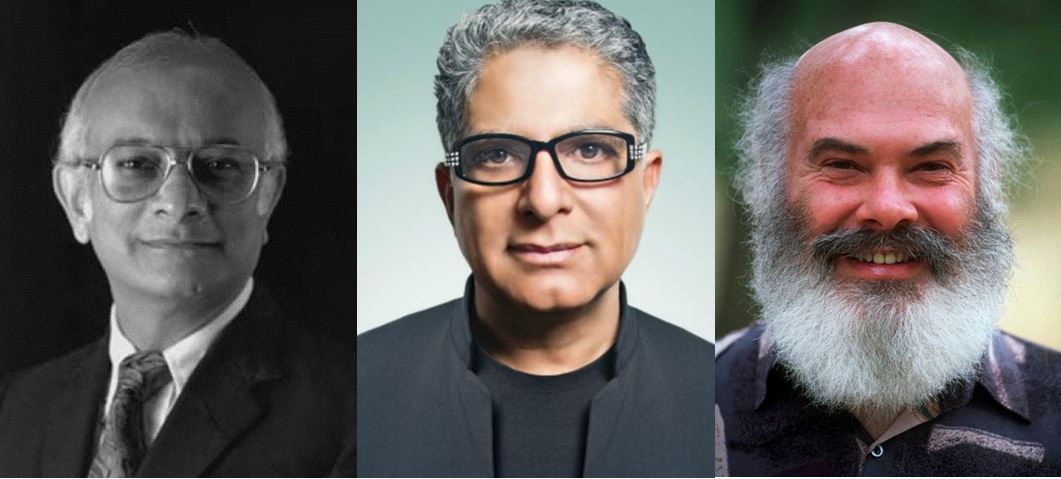Results for: conflicts of interest
Steven Higgs: Another antivaccine reporter like Dan Olmsted in the making?
April is National Autism Awareness Month, and as of today April is nearly half over. Do you notice anything different compared to the last couple of years? I do. Can you guess what it is? The anti-vaccine movement’s usual suspects haven’t been all over the mainstream media, as they usually are this time every year, often as early as April 1 or...
Biologie Totale and other bastard offspring of Ryke Geerd Hamer’s German New Medicine
A few months ago, I wrote about a particularly nasty form of cancer quackery known as the “German New Medicine” or Die Germanische Neue Medizin in German. As you may recall, the German New Medicine is based on the nonsensical idea that cancer arises from an internal emotional conflict. This conflict then results in what is called the “Dirk Hamer Syndrome” (DHS)...
Evidence in Medicine: Correlation and Causation
There are two general approaches to subverting science-based medicine (SBM): anti-science and pseudoscience. Anti-scientific approaches are any that seek to undermine science as the determinant of the standard of care, often overtly advocating for spiritual or subjectively-based standards. Some attack the validity of science itself, usually with post-modernist philosophy. Pseudoscientific proponents, on the other hand, praise science, they just do it wrong....
The clinician-scientist: Wearing two hats
About a week ago, Tim Kreider wrote an excellent post about the differences between medical school training and scientific training. As the only other denizen of Science-Based Medicine who has experienced both worlds, that of a PhD and that of an MD, and as the one who two decades further along the path than Tim (give or take a couple of years),...

Chopra and Weil and Roy, oh my! Or: The Wall Street Journal, coopted.
When the unholy Trinity of Woo attacks! Deepak Chopra, Andrew Weil, and Rustum Roy join forces to fool the Wall Street Journal.
The fallacy of “balance” and “fairness” about unscientific health claims in the media: A case study
For those of us who have dedicated ourselves to promoting science-based medicine, one of the most frustrating impediments to our message is the media. Time and time again, I’ve complained about how the media takes unscientific health claims, particularly when it comes to vaccines, and gives a credulous hearing to them. Sometimes, it’s a filmmaker with a distinct ideological axe to grind...
Do over one in five breast cancers detected by mammography alone really spontaneously regress?
It figures. Last Wednesday, right before the four-day Thanksgiving holiday weekend, as I was far more interested in preparing to have family over the next day than in what was going on in the medical news or the blogs, the results of a most fascinating study hit the news. In Medscape, the title of the news report was Mammography Study Suggests Some...
Interpreting the Medical Literature
The science in science-based medicine includes all of science, but relies most heavily on the biomedical literature – published studies that collectively represent our scientific medical knowledge. The scientific basis of medicine is only as good as this body of knowledge and the manner in which it is interpreted and put into practice. We often discuss on this blog how to evaluate...
Autism and Vaccines: Responding to Poling and Kirby
In response to my NeuroLogica blog post on Monday, David Kirby wrote a response in the Huffington Post and Dr. Jon Poling (father of Hannah Poling) wrote an open letter to me, placed in the comment section and posted at Age of Autism. It seems only polite that I respond to their kind attention.The primary focus of my original post (which I...
The Ethics of “CAM” Trials: Gonzo (Part V)
Part IV of this blog ended by observing that the NIH-funded trial of the “Gonzalez regimen” for cancer of the pancreas,† to have begun in March, 1999, was in trouble almost as soon as it started. As originally designed, it was to have been a randomized, controlled trial comparing gemcitabine, the standard chemotherapy, to the “Gonzalez regimen” of pancreatic enzymes, “supplements,” twice-daily coffee enemas, and other purported...

